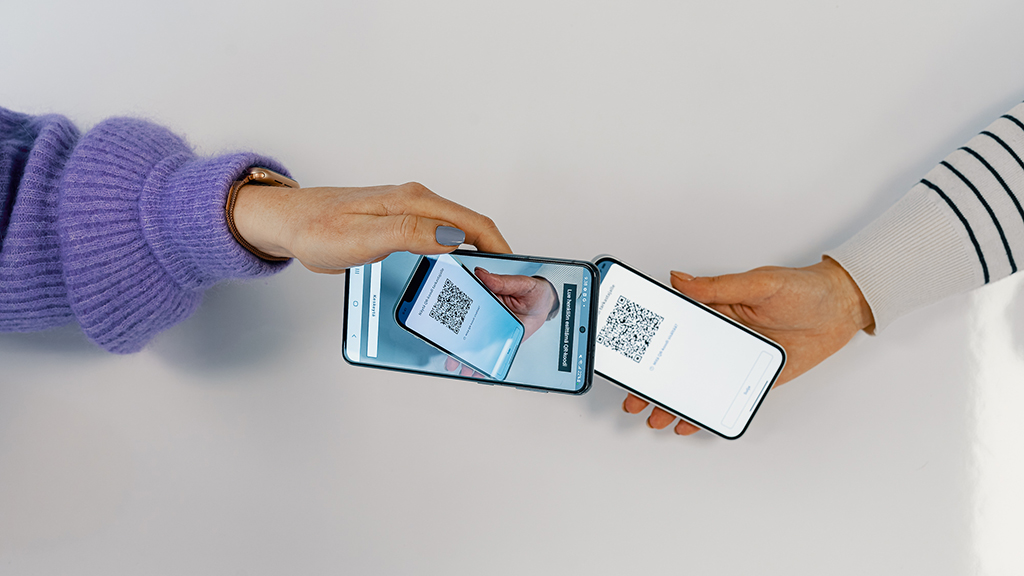Digital identity reform interrupted, need for digital identity solutions did not disappear
Parliament will not have time to discuss legislative proposals facilitating the reform of digital identity before the end of the session. The reform would improve the management of personal data, make electronic identification available to everyone and streamline immigration processes. The Digital and Population Data Services Agency is prepared to continue its development work during the next government term.

Digital identity services developed by the Digital and Population Data Services Agency will not be introduced in September this year. A code display and a mobile application that would have enabled the use of a digital proof of identity and a digital ID for foreigners remain unpublished. Neither will the reform of personal identity codes proceed, except for the new intermediate characters.
The Digital and Population Data Services Agency has been developing digital identity solutions as part of the project run by the Ministry of Finance.
Digital identity promotes an equal society
The reform would make the digital proof of identity available to everyone on their phone and allow more equality in access to social digital services. Strong electronic identification is not yet available to everyone, even though more and more services are digital. A digital proof of identity would also improve the management of one's own data, as only the necessary information would be shared in the identification situation.
“The reform is still necessary, and we believe that Finland's next government will also see this matter as important. We will be able to continue the development work and publish the services quickly if so decided,” says Deputy Director General Pekka Rehn from the Digital and Population Data Services Agency.
According to a study commissioned by the Digital and Population Data Services Agency, representing the Finnish population, almost 30 per cent of Finns aged 16–74 intended to use the digital proof of identity. 50 per cent planned to possibly use the service. Many organisations had also actively participated in the development work and were prepared to verify the digital proof of identity.
Reform of personal identity codes partially implemented
The reform of the personal identity code and digital ID for foreigners would have streamlined the processes of labour immigration. In the reform, gender data would also have been removed from the personal identity code, and the use of unique identifiers would have been made possible. The unique identifiers would not have replaced the personal identity code.
The introduction of new intermediate characters related to the reform of personal identity codes ensures the adequacy of personal identity codes in the future. A decision on the reform of intermediate characters was made last year. The Digital and Population Data Services Agency will continue to issue personal identity codes in their current form for as long as they are available. According to the current estimate, personal identity codes with intermediate characters will be issued for the first time in April 2024.
Preparations for European Digital Identity Wallet continue
The preparation for the European digital identity wallet will continue in Finland and throughout Europe. The Digital and Population Data Services Agency has developed digital identity solutions in a manner that will allow them to be expanded for cross-border use in the EU area, as soon required by the EU Member States.
“We still need to prepare for the demands of the European digital identity wallet. The digital identity reform will continue in this respect. The development of an application intended for Finland has also made it possible to actively influence the preparation of the European identity wallet,” says Pekka Rehn.
The survey on the introduction of a digital identity card was conducted by the media agency dentsu Finland, commissioned by the Digital and Population Data Services Agency. The data was collected in the M3 Panel maintained by Bilendi Oy on 2–13 December 2022. The target group were Finnish citizens aged 16–74. A total of 2,500 respondents responded to the survey. When weighted, it is a nationally representative sample by gender, age and residential area.
Further information
Pekka Rehn, Deputy Director General, The Finnish Digital Agency, [email protected]
Links
- Palvelut henkilöasiakkaille
- Muutto
- Tarkasta omat henkilötietosi
- Tilaa todistus väestötietojärjestelmästä
- Nimenmuutos
- Edunvalvontavaltuutus ja varautuminen
- Aikuisen edunvalvonta
- Näin haet itsellesi edunvalvojaa
- Näin ilmoitat edunvalvontaa tarvitsevasta henkilöstä
- Milloin edunvalvoja tarvitsee luvan?
- Edunvalvojan tehtävät
- Milloin edunvalvoja tarvitsee sijaisen?
- Päämiehen toimintakelpoisuuden rajoittaminen
- Milloin edunvalvonta päättyy?
- Tietoa päämiehen läheisille
- Poissa olevan henkilön tai omaisuuden tulevan omistajan etujen valvominen
- Alaikäisen omaisuuden edunvalvonta
- Milloin alamme seurata alaikäisen omaisuuden hoitoa
- Tietoa edunvalvojille
- Alaikäisen edunvalvojan tehtävät
- Milloin edunvalvoja tarvitsee luvan?
- Milloin alaikäinen tarvitsee edunvalvojan elatusapuasiaa varten
- Milloin edunvalvoja tarvitsee sijaisen?
- Ohjeita leskeksi jääneelle lasten huoltajalle
- Usein kysyttyä alaikäisen edunvalvonnasta
- Lapsen syntymä ja adoptio
- Avioliitto ja parisuhde
- Kuolema ja perunkirjoitus
- Ulkomaalaisena Suomessa
- Ulkomaalaisen rekisteröinti väestötietojärjestelmään
- Opiskelijan opas
- Kotikunta
- Perhesuhteet ja siviilisääty
- Ulkomaalaisen muutto Suomeen, Suomessa ja Suomesta
- Ohjeita Ukrainasta saapuville
- Інструкції для українців
- Erityisasiantuntijoiden ja kasvuyrittäjien pikakaista
- Työntekijän opas
- Laillistamisohje
- Ulkomaisten asiakirjojen toimittaminen
- Julkisen notaarin todistamispalvelut
- Kansalaisuus
- Sukupuolen vahvistaminen
- Uskonnollisen yhdyskunnan jäsenyys
- Vaalit, äänioikeus ja kansalaisaloite
- Kaupanvahvistus
- Lahjailmoituksen rekisteröinti
- Kansalaisvarmenne ja sähköinen henkilöllisyys
- Palvelut organisaatioasiakkaille
- Varmenteet, kortit ja leimat
- Väestötietopalvelut
- Väestötietojärjestelmän ylläpito
- Maistraattirekisterien hakupalvelut
- Otteet rekistereistä
- Digiturvapalvelut
- Digituki
- Suomi.fi-palvelut
- Digitalisaatiota edistävät palvelut
- Julkisen notaarin palvelut
- Kaupanvahvistus
- Vihkimisoikeus
- Ohjeet hyvinvointialueille
- Finnish Authenticator -tunnistuspalvelu
- Avoin data
- Verkkoasiointi
- Tietoa virastosta
- Digi- ja väestötietovirasto
- Meille töihin
- Asioi sähköisesti
- Yhteystiedot
- Ajankohtaista
- Digi- ja väestötietovirasto sosiaalisessa mediassa
- Yleistiedoksiannot ja kuulutukset
- Automaattinen ratkaisumenettely
- Laatupolitiikka
- Asiakkaiden yhdenvertaisuussuunnitelma
- Tietosuoja
- Medialle
- Esitteet ja julkaisut
- Väestötietojärjestelmä
- Hankkeet
- Ennakointi ja tutkimusyhteistyö



